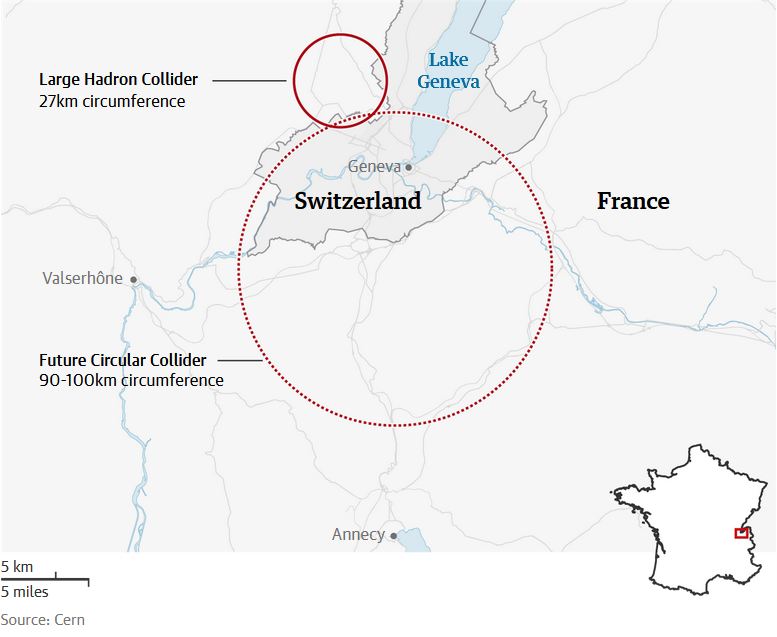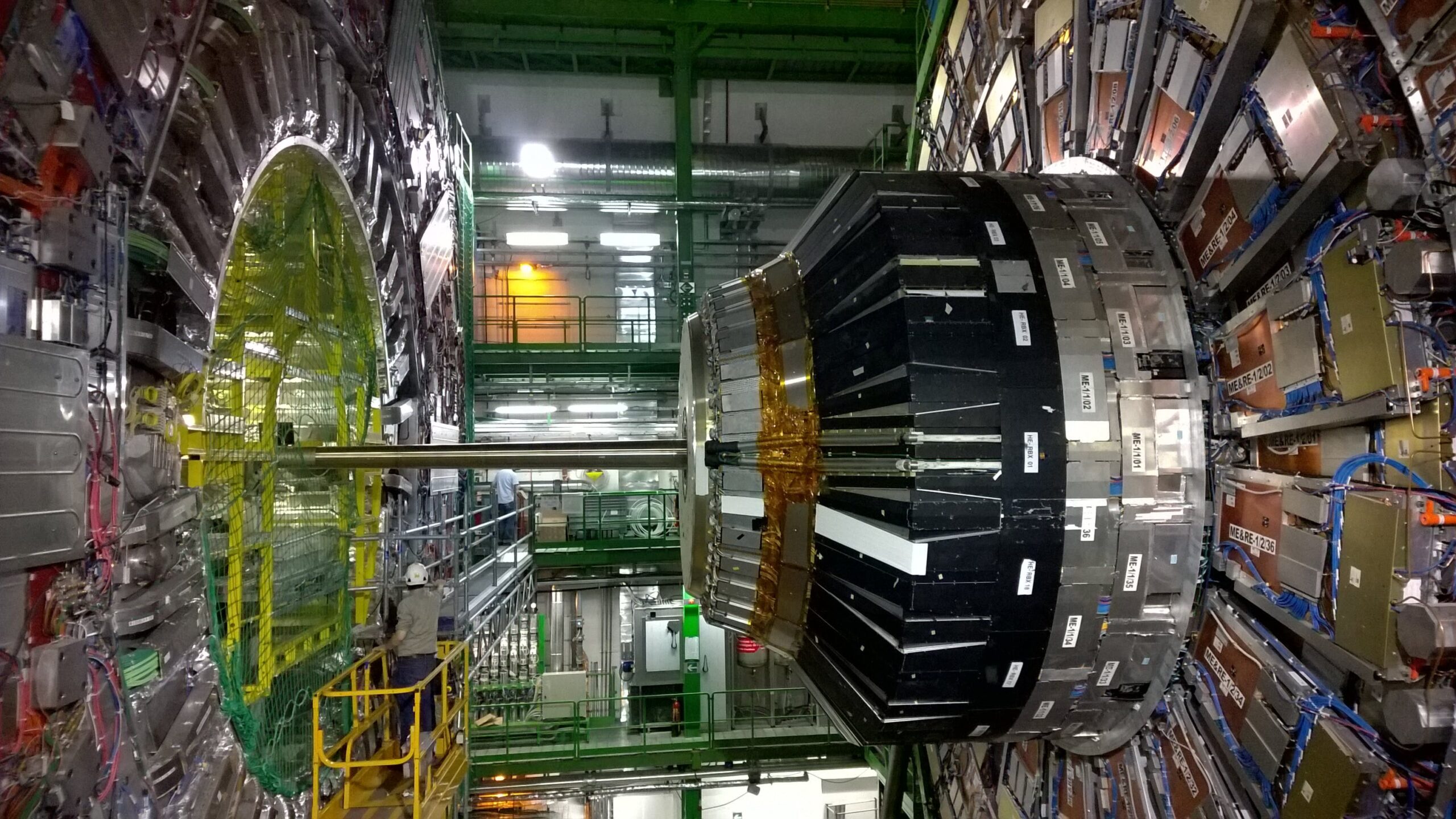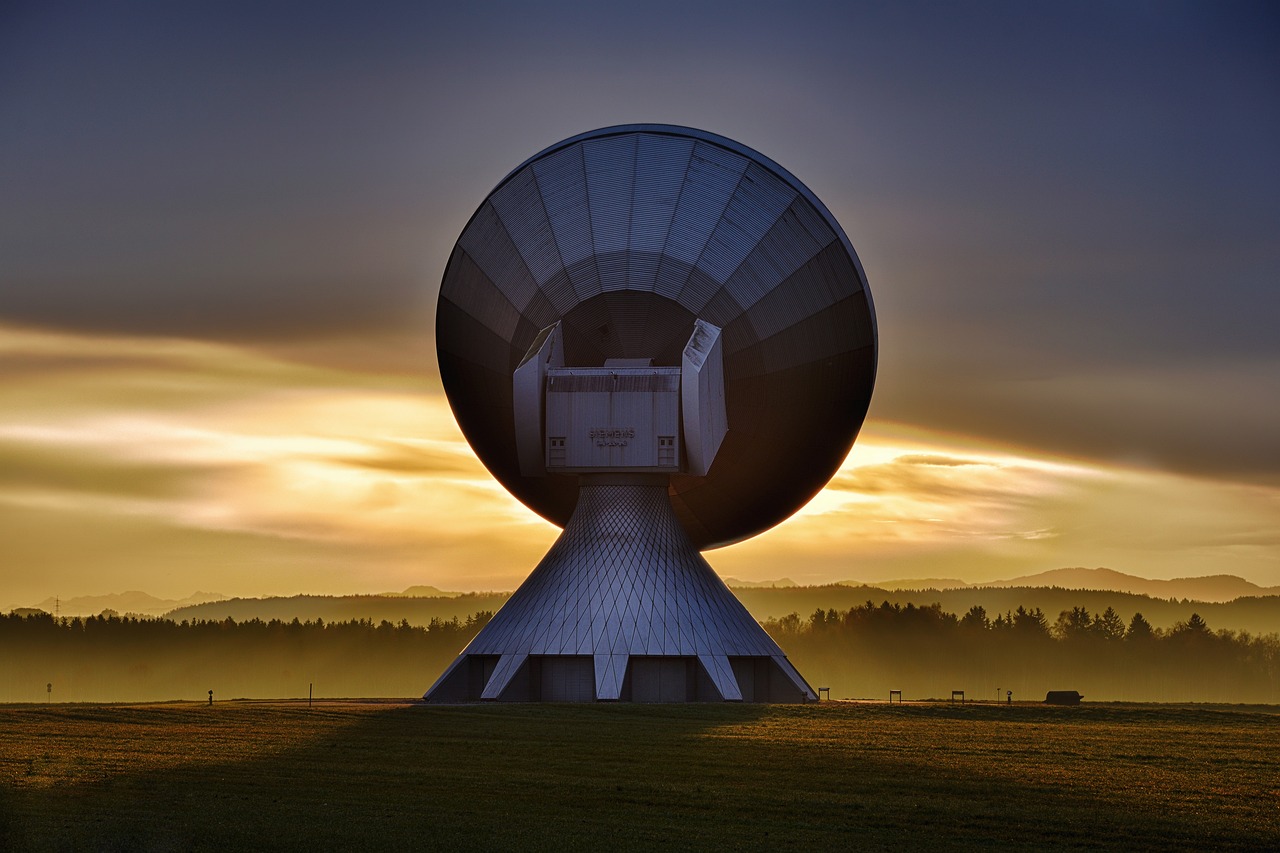The quest to unravel the mysteries of the universe has long captivated the minds of scientists and thinkers alike. At the forefront of this pursuit stands the European Organization for Nuclear Research, more commonly known as CERN. Situated near Geneva, Switzerland, CERN is home to the world-renowned Large Hadron Collider (LHC), a marvel of modern engineering that has propelled humanity into the realm of particle physics like never before.
Since its inception, the LHC has pushed the boundaries of scientific exploration, smashing together subatomic particles at energies approaching the speed of light. This monumental task takes place within a 27-kilometer circular tunnel buried deep beneath the picturesque Swiss-French countryside. The collider’s primary aim is to recreate the conditions that existed mere fractions of a second after the Big Bang, offering insights into the fundamental nature of the cosmos.
In 2012, the LHC achieved one of its most significant milestones with the discovery of the elusive Higgs boson. This groundbreaking achievement, nearly half a century after its theoretical proposal by Peter Higgs and others, earned the Nobel Prize in Physics and solidified the collider’s place in scientific history. However, despite this triumph, the LHC has yet to unveil further groundbreaking discoveries that could shed light on some of the universe’s deepest enigmas.
Enter the Future Circular Collider (FCC), CERN’s ambitious endeavor to build upon the legacy of the LHC and delve even deeper into the mysteries of the cosmos. With a proposed budget of €20 billion, the FCC aims to surpass its predecessor in both scale and scope, promising to revolutionize our understanding of particle physics.
At its core, the FCC represents a quantum leap forward in scientific exploration. With a circumference of 91 kilometers, dwarfing the LHC’s already impressive 27-kilometer ring, the collider seeks to smash subatomic particles together at energies reaching up to 100 teraelectronvolts (TeV). This unprecedented level of energy opens the door to new realms of discovery, offering tantalizing prospects for unlocking the secrets of dark matter, dark energy, and the fundamental forces that govern the universe.
Despite its lofty ambitions, the FCC has faced its fair share of criticism. Some skeptics argue that allocating billions of euros to such a project in the midst of pressing global challenges, such as climate change, is misguided. Sir David King, the UK’s former government chief scientific adviser, has voiced concerns about the project’s potential to divert resources away from urgent environmental initiatives.
However, proponents of the FCC argue that the pursuit of scientific knowledge is inherently valuable, with the potential to yield unforeseen benefits for humanity. Fabiola Gianotti, CERN’s director-general, emphasizes the collider’s role as a tool for exploring the fundamental laws of nature, paving the way for technological innovations and breakthroughs that could shape the future of humanity.
Tara Shears, a member of the LHCb experiment and professor of physics at the University of Liverpool, echoes this sentiment, highlighting the transformative potential of the FCC to reveal new insights into the universe’s inner workings. She emphasizes that the collider represents a next-generation machine, capable of probing the fundamental building blocks of reality with unprecedented precision.
If approved, the FCC will be constructed in two phases, each offering unique opportunities for scientific discovery. The first phase will focus on colliding electrons and positrons, while the second phase, slated for the 2070s, will involve proton collisions. These collisions will take place deep underground, necessitating careful planning and engineering to mitigate potential radiation risks.

Despite the project’s ambitious scope, some critics remain unconvinced of its scientific merit. Dr. Sabine Hossenfelder, a researcher at the Munich Center for Mathematical Philosophy, questions whether the FCC will truly advance our understanding of the universe or simply yield incremental improvements in existing models. She cautions against investing resources into research that may not yield significant advancements, urging scientists to critically evaluate the project’s potential impact.
However, supporters of the FCC, such as Prof. Jon Butterworth of University College London, argue that the pursuit of knowledge is inherently valuable, regardless of immediate practical applications. Butterworth emphasizes the importance of pushing the boundaries of scientific understanding, noting that the collider represents a vital tool for exploring the fundamental nature of reality.
In the end, the decision to proceed with the FCC represents a balancing act between scientific curiosity and practical considerations. While the collider holds the promise of unlocking profound insights into the universe’s mysteries, its construction requires substantial financial and logistical investments. As discussions continue within the scientific community and among policymakers, one thing remains certain: the quest to understand the cosmos will always push humanity to reach for the stars.









Leave a Reply